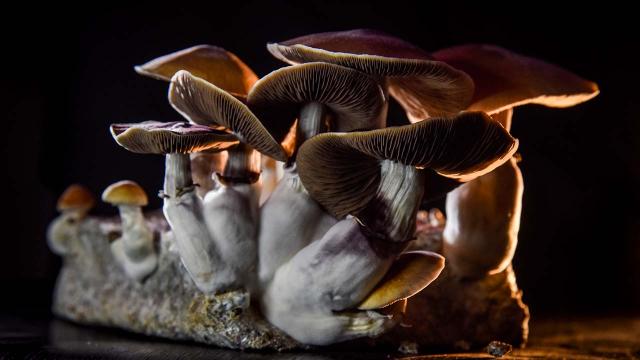Scientists at the University of Queensland say that Australia’s native magic mushrooms could treat severe depression as well as addictions and disorders.
As reported by the ABC, University of Queensland mycologist and evolutionarily biologist Dr. Alistair McTaggart has gathered Australia’s first legal collection of psilocybin mushrooms — commonly known as magic mushrooms — in a forest in Tasmania. He said that, through his research, he aims to prove that the drug has the potential to give relief for people suffering from PTSD, major depression, addiction or eating disorders.
“Psychedelic mushrooms are taking off, everyone’s talking about them,” Dr. McTaggart said. “In America, the USDA [United States Department of Agriculture] has fast-tracked psilocybin treatment. It’s considered a breakthrough therapy.
“With COVID-19 right now, I think there’s never been a better time to start looking for therapies for mental health.”
The research project, conducted by Dr. Taggart and the Queensland Alliance for Agriculture and Food Innovation, is part of a larger $15m grant from the Federal Government to research the use of substances like magic mushrooms, ecstasy and ketamine in treating mental, addictive and eating disorders.
The researchers plan to prove their hypothesis by genomic sequencing the DNA of mushrooms with hallucinogenic properties, as well as looking at photographs of these mushrooms taken by “citizen scientists”. They will also collaborate with other scientists working on shaping genetic strains to specific medical treatment.
[related_content first=”1691934″]
Australia’s magic mushrooms population
There are over 200 different species of mushrooms around the world that produce psilocybin, the natural psychoactive substance that gives “magic mushrooms” their hallucinogenic effects. Of those, 20 to 30 are found in Australia.
Dr. Taggart aims to find out which of them are native, edible or poisonous, or could be used for medicinal purposes.
Previous research from a small clinical trial in the US found that patients suffering from major depressive disorder showed fewer depressive symptoms after two doses of psilocybin. The drug’s mental relief effects allegedly lasted for up to four weeks with minimal side effects.
The University of Queensland research project is the first proper investigation into the effects of native Australian sources of psilocybin. While it could serve as proof that the substance could be used in a remedial capacity, it could also distinguish therapeutic hallucinogenic fungi from poisonous ones.
What are the potential implications of this research project?
If Dr. McTaggart’s hypothesis is proven during his research, it could have huge results for legalising the drug in a medicinal context.
Possessing, using, making or selling hallucinogens, including magic mushrooms, is currently illegal under both federal and state laws. Per the Australian Federal Police’s main drug index on hallucinogens, people in Victoria can face a range of penalties from a $2000 fine and/or one-year imprisonment for possession or use to fines of up to $250,000 and/or 25 years imprisonment for commercial trafficking.
According to Edith Cowan University’s school of medical and health sciences psychologist, Dr. Stephen Bright, per the ABC, if successful, the project could lead to clinical trials of psilocybin-assisted psychotherapy in Western Australia.
“The research that we’re talking about here — in terms of understanding the native psilocybin species — could contribute to the international psychedelic science renaissance,” he said.
The verdict is still out on whether the Federal Government will legalise ecstasy and magic mushrooms to treat mental illness, but this project could have a big impact on that debate.
